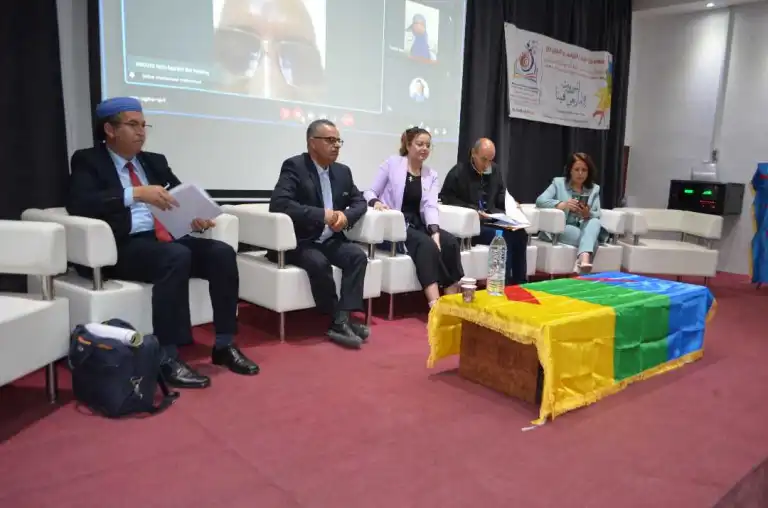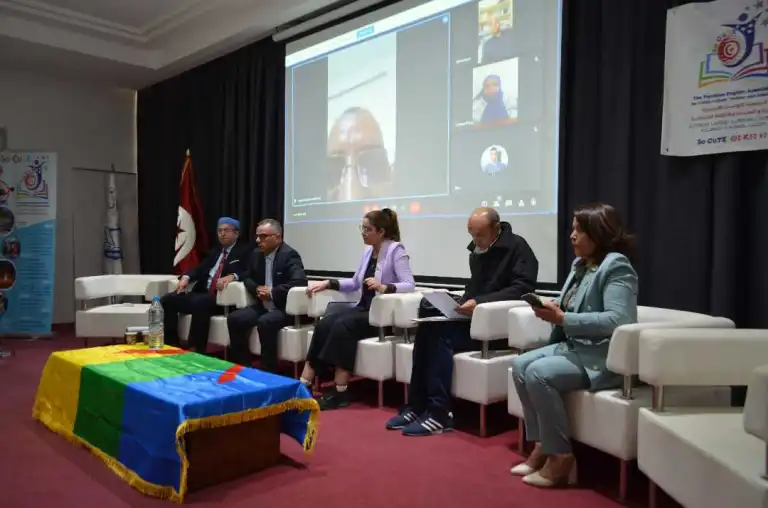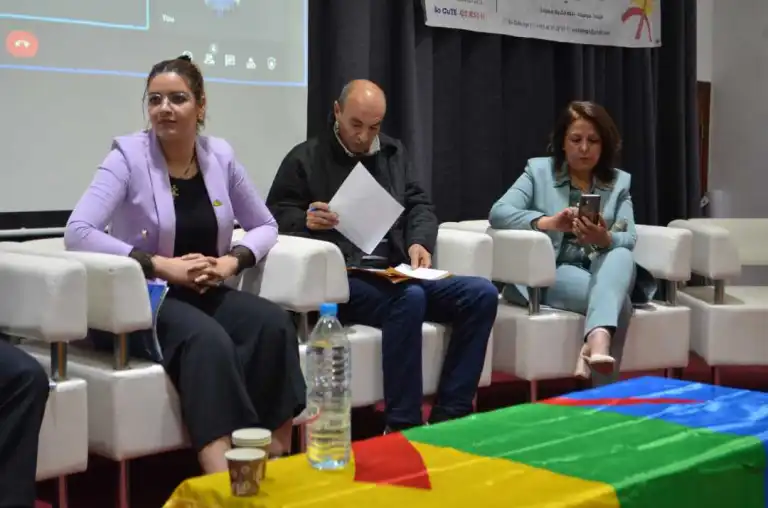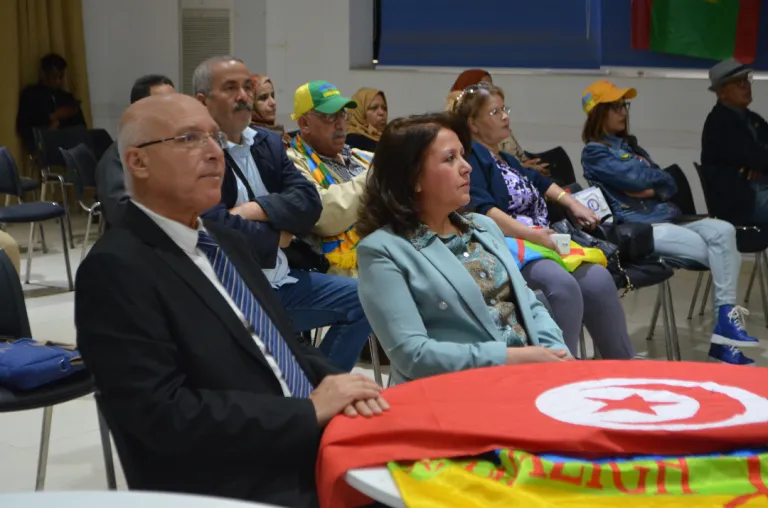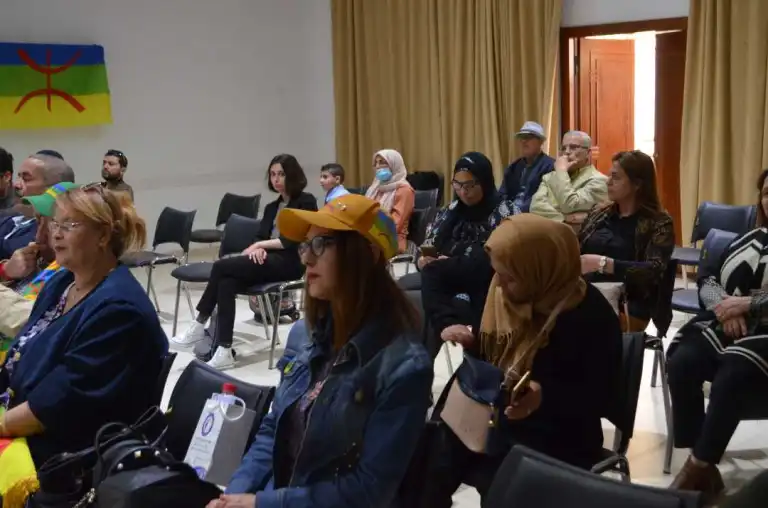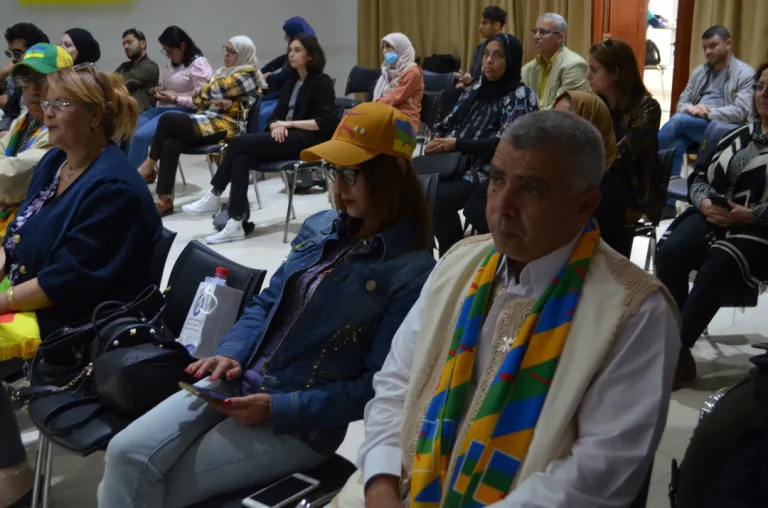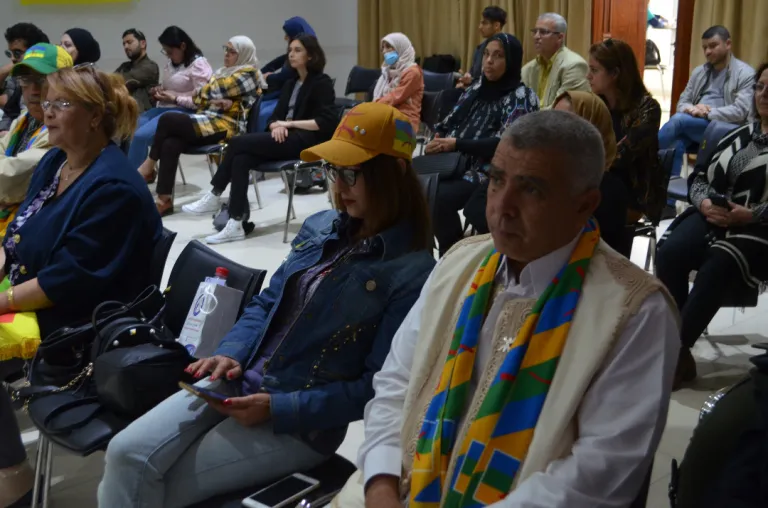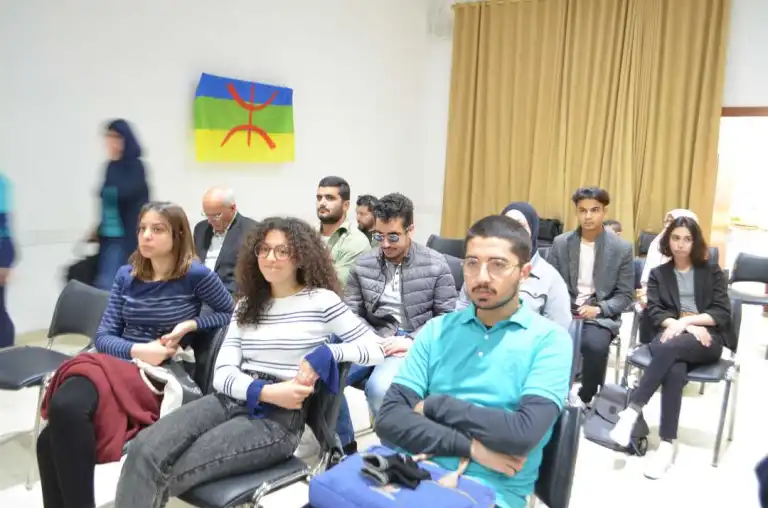Tunisian researcher: Amazigh is the original culture of North Africans
The Tunisian researcher in sociology and anthropology, Mourad Mhenni, confirmed that "the original culture of the Maghrebis is the Amazigh culture", referring to what has been confirmed by a number of anthropological and historical studies.
During an intervention entitled "Amazigh culture in Tunisia: confusion of concepts, Amazigh culture in Tunisia: confusion of concepts and current identity dynamism", in an intellectual symposium on "Amazigh history, civilization and culture, with all its aspects and details of life and a presence represented in the details of contemporary daily life", organized by the organization. By the "English Tunisian Association for Education, Tourism and Social Culture" yesterday, Friday 06 May , as part of the work of the second session of the "Amazigh Tunisian Heritage Festival" that "the loss of the language of the indigenous people and the predominance of another language cannot deny the authenticity of the Amazigh culture as some promote”.
Dr. Murad Mhenni stressed the need to “distinguish between indigenous peoples who have experienced deculturation and peoples who have assimilated and interacted with incoming cultures without losing the fundamental components of culture, which applies to the Amazigh culture which has not known the experience of cultural erasure as it was known by the indigenous peoples of the American continent or in Australia or in certain societies of sub-Saharan Africa.
He called for not "confusing the indigenous culture with the Amazigh-speaking minority in Tunisia".
He pointed out that "the regional cultural environment is an Amazigh environment which has been supported at an accelerated pace by the constitutionalization of the Amazigh language as an official language in Morocco and Algeria".
In his speech, he added: “It is not possible to imagine a person in the Amazigh cultural milieu separated from this culture of origin”.
The Tunisian researcher mentioned the establishment of many associations that carry an Amazigh label, unlike the associations that existed before 2011, which did not carry this label (heritage labels, mountain villages, etc.) in addition to "the emergence many pages interested in the Amazigh culture through social networks, in particular Facebook which is interested in the different cultural elements that make up the Amazigh culture: architecture, food habits, textiles... in addition to the language.
He also referred to "the involvement of many non-native speakers in the Amazigh cultural movement, which has sometimes overtaken the speaker-led movement, and the growing number of speakers interested in supporting Berber culture and those whose ancestors have lost their tongue".
Researcher Mourad Mhenni underlined "the emergence of coordination between Amazigh associations in Tunisia and in different Maghreb countries, with the will that this implies to create a regional incubator for the Amazigh movement in Tunisia".
Tunisia / Montaser Ethri
https://amadalamazigh.press.ma/%d8%a8%d8%a7%d8%ad%d8%ab-%d8%aa%d9%88%d9%86%d8%b3%d9%8a-%d8%a7%d9%84%d8%a3%d9%85%d8%a7%d8%b2%d9%8a%d8%ba%d9%8a%d8%a9-%d9%87%d9%8a-%d8%a7%d9%84%d8%ab%d9%82%d8%a7%d9%81%d8%a9-%d8%a7%d9%84%d8%a3%d8%b5/?fbclid=IwAR1RC_Eihom2yYTYZ5jaLJ2mwtxxVHzzCTAlTJPXRHjfNb1XKD9Cc7W5QzI


